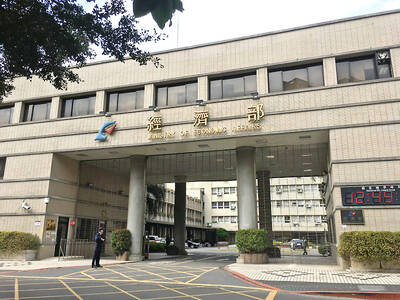CtiTV News (中天新聞) dedicated 70 percent of its airtime in May to Kaohsiung Mayor Han Kuo-yu (韓國瑜), the National Communications Commission (NCC) said yesterday.
The commission conducted an audit of news reporting by 11 media companies in May, finding that nine of them reported most frequently on Han, it said yesterday.
Taiwan Television (台視), China Television (中視), Chinese Television System (華視), Next TV (壹電視), Era News (年代新聞), EBC News (東森), CtiTV, Formosa Television (民視), Sanlih Entertainment Television (三立), TVBS and Global News (寰宇新聞) were all audited, it said.
The NCC conducted the audit between May 21 and 27, from 12pm to 1pm and 7pm to 8pm daily, NCC Department of Broadcasting and Content specialist Chen Shu-ming (陳書銘) said.
CtiTV dedicated the most airtime to Han, and it gave 60 percent more airtime to Han than to its next most-broadcast politicians, Taipei Mayor Ko Wen-je (柯文哲) and President Tsai Ing-wen (蔡英文), the NCC said, adding that Ko and Tsai each received about 9 percent of CtiTV’s airtime.
Taiwan Television allocated most of its airtime to Ko and Chinese Television System focused mostly on former premier William Lai (賴清德), while the other stations focused predominantly on Han, he said.
TVBS also gave the second-greatest amount of airtime to Ko, allocating him about 20 percent, the NCC said.
In March, the NCC gave CtiTV a deadline to effect improvements, included providing more balanced reporting of politicians, it said.
Meanwhile, a report yesterday in Britain’s Financial Times said that reporting by CtiTV was one-sided in favor of the Chinese Nationalist Party (KMT), and that it did not report on national news related to President Tsai Ing-wen (蔡英文), such as her visit to diplomatic allies in the Caribbean.
CtiTV and other media outlets under the Want Want China Times Media Group (旺旺中時集團) received instructions directly from China’s Taiwan Affairs Office, the Times quoted a CtiTV reporter as saying, on condition of anonymity.
“They call every day. They don’t meddle in everything, mainly topics related to cross-strait relations and to China. They have a say in the angle of the story and whether it goes on the front page,” the reporter said.
The Times said China plans to have Han Kuo-yu elected and has enlisted Taiwanese media to help.
Han has rejected the allegations, but there is evidence that Want Want is behind his campaign, such as when it sent reporters and editorial managers to Kaohsiung before the mayoral election in November last year, the paper said.

LIMITS: While China increases military pressure on Taiwan and expands its use of cognitive warfare, it is unwilling to target tech supply chains, the report said US and Taiwan military officials have warned that the Chinese People’s Liberation Army (PLA) could implement a blockade within “a matter of hours” and need only “minimal conversion time” prior to an attack on Taiwan, a report released on Tuesday by the US Senate’s China Economic and Security Review Commission said. “While there is no indication that China is planning an imminent attack, the United States and its allies and partners can no longer assume that a Taiwan contingency is a distant possibility for which they would have ample time to prepare,” it said. The commission made the comments in its annual

DETERMINATION: Beijing’s actions toward Tokyo have drawn international attention, but would likely bolster regional coordination and defense networks, the report said Japanese Prime Minister Sanae Takaichi’s administration is likely to prioritize security reforms and deterrence in the face of recent “hybrid” threats from China, the National Security Bureau (NSB) said. The bureau made the assessment in a written report to the Legislative Yuan ahead of an oral report and questions-and-answers session at the legislature’s Foreign Affairs and National Defense Committee tomorrow. The key points of Japan’s security reforms would be to reinforce security cooperation with the US, including enhancing defense deployment in the first island chain, pushing forward the integrated command and operations of the Japan Self-Defense Forces and US Forces Japan, as

‘TROUBLEMAKER’: Most countries believe that it is China — rather than Taiwan — that is undermining regional peace and stability with its coercive tactics, the president said China should restrain itself and refrain from being a troublemaker that sabotages peace and stability in the Indo-Pacific region, President William Lai (賴清德) said yesterday. Lai made the remarks after China Coast Guard vessels sailed into disputed waters off the Senkaku Islands — known as the Diaoyutai Islands (釣魚台) in Taiwan — following a remark Japanese Prime Minister Sanae Takaichi made regarding Taiwan. Takaichi during a parliamentary session on Nov. 7 said that a “Taiwan contingency” involving a Chinese naval blockade could qualify as a “survival-threatening situation” for Japan, and trigger Tokyo’s deployment of its military for defense. Asked about the escalating tensions

The Ministry of Economic Affairs said it plans to revise the export control list for strategic high-tech products by adding 18 items under three categories — advanced 3D printing equipment, advanced semiconductor equipment and quantum computers — which would require local manufacturers to obtain licenses for their export. The ministry’s announcement yesterday came as the International Trade Administration issued a 60-day preview period for planned revisions to the Export Control List for Dual Use Items and Technology (軍商兩用貨品及技術出口管制清單) and the Common Military List (一般軍用貨品清單), which fall under regulations governing export destinations for strategic high-tech commodities and specific strategic high-tech commodities. The